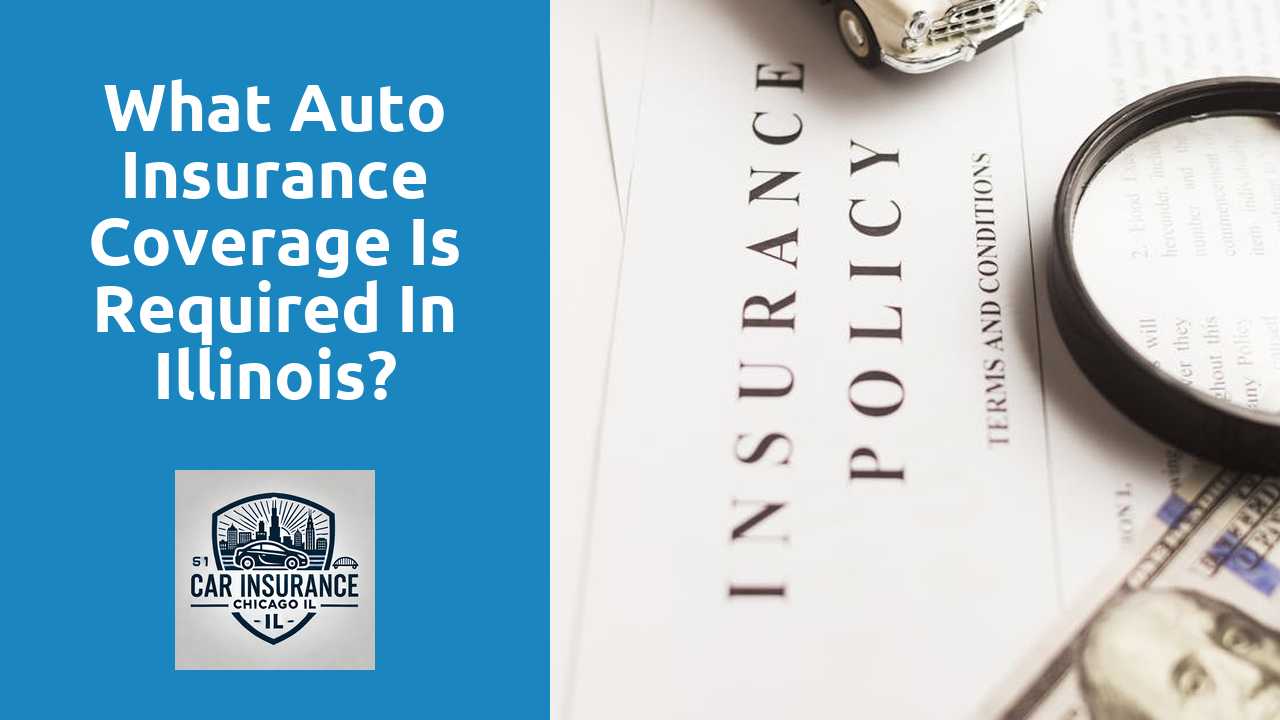What auto insurance coverage is required in Illinois?

Table Of Contents
Comprehensive Coverage
Comprehensive coverage provides protection for your vehicle against a variety of non-collision incidents. This includes damage caused by theft, vandalism, fire, or natural disasters such as flooding and hail. Many drivers find this type of coverage essential, as it helps cover repairs or replacement costs that would otherwise come out of pocket.
While comprehensive coverage is not mandated by Illinois law, it can be beneficial, especially for those with newer or more expensive vehicles. Additionally, some lenders or leasing companies may require it as part of financing agreements. Evaluating your individual circumstances and vehicle value can help determine if this coverage is a suitable choice for your insurance policy.
Protecting Against Non-Collision Incidents
Comprehensive coverage is essential for safeguarding your vehicle against a variety of non-collision events. This type of insurance protects against damages caused by incidents such as theft, vandalism, natural disasters, and falling objects. It ensures that you won't face significant financial setbacks if your car suffers damage from unforeseen circumstances outside your control.
Another crucial aspect of comprehensive coverage is its role in providing peace of mind. Knowing that you are protected against a wide range of potential losses allows for a more relaxed driving experience. As natural disasters and unpredictable events can occur at any time, having this type of insurance serves as an important safety net. This protection not only secures your investment but also helps to manage the overall stress associated with vehicle ownership.
Other Optional Coverages
Many drivers in Illinois choose optional coverages to enhance their auto insurance policies. These additional options can provide greater protection and peace of mind. For instance, roadside assistance can be invaluable for those who frequently travel long distances or drive in unfamiliar areas. This coverage typically includes services such as towing, battery jump-starts, and flat tire changes, making it easier for drivers to handle unexpected breakdowns.
Another popular optional coverage is rental reimbursement, which helps cover the costs of a rental vehicle in the event that your car is being repaired after an accident. This feature is particularly useful for those who rely on their vehicle for daily commuting or other essential activities. Additionally, gap insurance offers protection for drivers whose vehicles are financed or leased, covering the difference between what you owe on the vehicle and its current market value in the event of a total loss.
Enhancing Your Policy with Additional Options
Many drivers in Illinois opt for additional coverage options to enhance their auto insurance policies. These options can provide extra protection and peace of mind beyond the state-mandated requirements. For example, adding roadside assistance can be invaluable during unexpected breakdowns, while gap insurance can cover the difference between the car's actual cash value and the remaining loan balance in the event of a total loss.
Furthermore, some drivers may choose rental car reimbursement to ensure they have transportation available while their vehicle is being repaired. This added convenience can lessen the disruption that comes with vehicle issues. Each optional coverage has a cost associated with it, but many find that the benefits outweigh the additional expense. Customizing a policy not only meets personal needs but also aligns with individual risk tolerance.
Policy Limits and Requirements
Illinois law mandates that all drivers carry minimum liability coverage. This includes $25,000 for bodily injury per person, $50,000 for total bodily injury per accident, and $20,000 for property damage. These legal minimums are designed to ensure that drivers can cover potential damages in the event of an accident, protecting both themselves and other parties involved.
Many experts recommend opting for higher policy limits to provide better financial security. The costs associated with accidents can quickly escalate beyond the state minimums. Enhanced coverage can safeguard assets and provide peace of mind, especially for those who frequently drive or possess significant assets.
Legal Minimums and Recommended Coverage
In Illinois, drivers must meet specific legal minimums for auto insurance to ensure financial responsibility. The state mandates liability coverage with a minimum of $25,000 for bodily injury per person, $50,000 for total bodily injury per accident, and $20,000 for property damage. These limits provide a basic level of protection in case of an accident.
While meeting these legal requirements is essential, many experts recommend higher coverage limits for better financial security. Increased liability coverage can protect assets and offer peace of mind in the event of severe accidents. Unforeseen circumstances often lead to costs that exceed minimum requirements, making additional coverage a wise consideration.
FAQS
What is the minimum auto insurance coverage required in Illinois?
In Illinois, the minimum required auto insurance coverage includes liability for bodily injury and property damage, specifically $25,000 for bodily injury per person, $50,000 for bodily injury per accident, and $20,000 for property damage.
What is comprehensive coverage in auto insurance?
Comprehensive coverage is an optional type of insurance that protects your vehicle against non-collision incidents, such as theft, vandalism, natural disasters, and other unforeseen events that can cause damage to your car.
Are there other optional coverages I can add to my auto insurance policy?
Yes, there are several optional coverages you can add to your auto insurance policy in Illinois, including collision coverage, uninsured/underinsured motorist coverage, personal injury protection (PIP), and rental reimbursement coverage.
What are policy limits, and why are they important?
Policy limits refer to the maximum amount your insurance company will pay for a covered claim. They are important because they determine your financial protection in the event of an accident or other incidents. Choosing appropriate limits can safeguard your assets and help you avoid out-of-pocket expenses.
How do I know if I need more than the minimum coverage?
While the minimum coverage meets legal requirements, it may not provide sufficient protection in the event of a serious accident. It's advisable to assess your personal financial situation, assets, and risk factors while considering higher coverage limits or additional optional coverages for better protection.